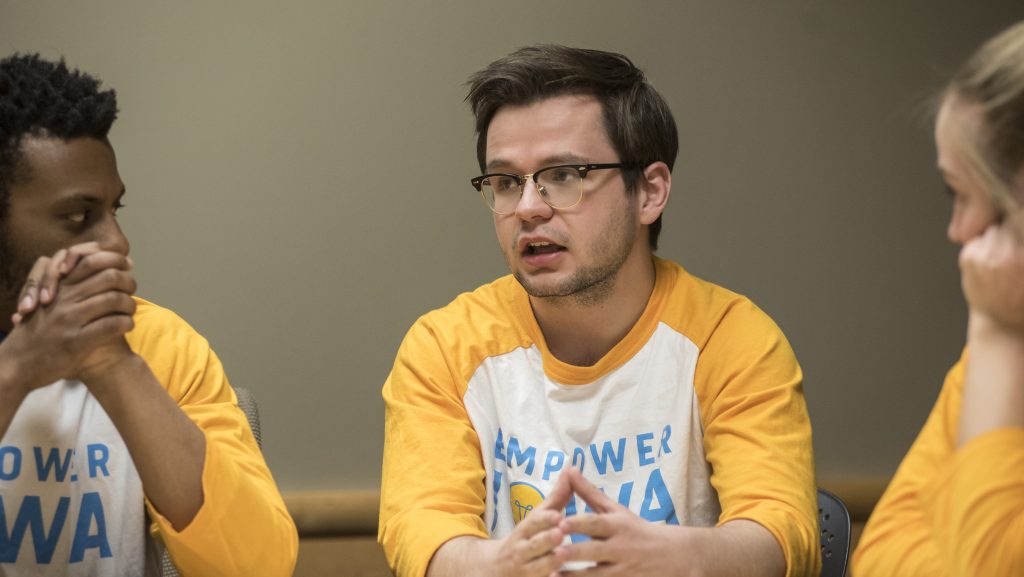The University of Iowa Student Government is taking a new initiative into its own hands to educate students about off-campus housing.
With the help of campus political organizations, UISG circulated a survey via mass email for student tenants to evaluate their living situations.
UISG city liaison Ben Nelson said data compiled in the surveys would be turned into an accessible report and published for UI students in the upcoming fall. He said a lot of the impetus was the lack of information students have regarding rentals and landlords.
“I’m really excited, I think it’s a good step forward,” Nelson said. “It’s a resource that students need even if they don’t necessarily think they need it.”
UISG deputy city liaison Gustave Stewart said the idea came from the Housing Task Force, following in the footsteps of Ohio State’s student government.
At Ohio State, the undergraduate student government put together a Renter’s Guide that documents by property the leasing process, monthly rent, and average monthly utilities.
RELATED: Urban-renewal plan to allocate $2 million to affordable housing
Nelson said that generally speaking, UI students lack information when they’re looking for off-campus housing for the first time. He recalled signing a lease in the fall semester of his freshman year and did not have much information to work with. The knowledge he had about the apartment complex he lived at his sophomore year came from word of mouth from his friends.
“Some students have a hard time knowing where their classes are right away, let alone what the environment is around campus,” Nelson said.
Third-year student Liana Salgado said she and her friends felt pressure to find housing off-campus, especially after October. They were almost desperate to find a place, she said. They relied primarily on an Iowa City message board in their search.
“We didn’t know exactly what was going on,” Salgado said. “We mostly went off of gossip and heard from people we knew.”
An additional motivation for the survey is to have an accountability mechanism for local landlords. Nelson said a ranking system would help keep them in check.
“We’re trying to make landlords have that accountability,” Stewart said. “When you’re looking to go off-campus, generally not many people know what’s out there, what landlords are doing good and bad.”
As of Monday morning, 460 people had responded to the survey. Stewart said that at this point, the survey would be like a pilot program, and they wanted to improve upon it to make a continual event.
“When we publish it in the fall, we’ll look at how the survey went well and not so well and update it for next time,” Stewart said. “We’re constantly getting the updated information.”
The survey and eventual periodical is a part of a greater initiative for students in off-campus housing. The Off-Campus Housing Advisory Board has helped build organizations including the neighborhood ambassador program, which has student liaisons for campus and local neighborhood groups.



